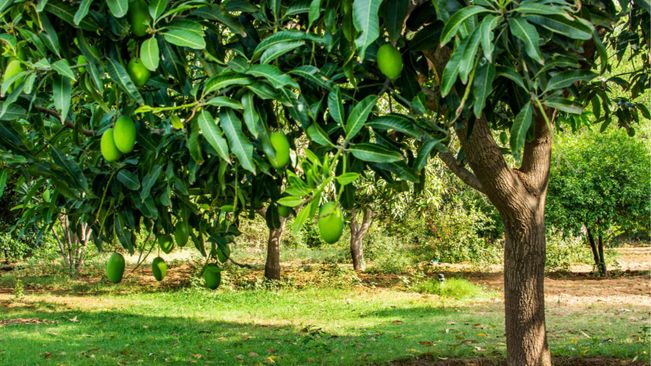The Lucknow Municipal Corporation has undertaken the ambitious task of developing this park over 15 acres in Kalli West, near Kisan Path on Rae Bareli Road, with an estimated budget of approximately Rs 18 crore, according to a government spokesperson.
The park will feature 2068 mango trees comprising 108 different species.
On Independence Day (August 15), Chief Minister Yogi Adityanath will also plant saplings here.
As part of Mission Amrit 2.0, the park aims to showcase 108 varieties such as Amrapali, Ambika, Dussehri, and Chausa.
As per Lucknow Municipal Commissioner Inderjitmani Singh, a 400-square-metre Mango Museum will be set up within the park. It will not only offer visitors the chance to admire and savour mangoes but will also be of educational importance. Through digital mediums, It will showcase details of about 775 mango species cultivated across the country.
A ‘Mango Haat’ will be set up to promote the sale of mango products. For this, the help of the UP horticulture department and the Central Institute of Subtropical Horticulture, Rehman Kheda will also be taken.
‘Mango Kiosks’ will be set up here as per the requirement, offering visitors an opportunity to savour various mango-based products.
Pathways throughout the park will be named after different mango species. Mango-shaped lights will illuminate the park, adding to its distinctive ambience.
Visitors will be welcomed by a grand stone carved as a mango at the entrance. Plans include creating four mango murals and one tree mural within the park.
A pond spanning 1930 square metres will be constructed, with aquatic plants such as water lilies and lotus, enhancing the aesthetic appeal of the Mango Park. The park will house 18,828 plants, transforming it into a biodiversity hub.
Surrounding the park’s boundary walls, shade-giving species like banyan, amaltas, gulmohar, and peepal will be planted.
Using the Miyawaki method, 1260 plants representing 20 different species, including mango, guava, amla, jamun, maulshree, sheesham, Ashoka, hibiscus, kinnow , peepal, fig, karanja, behada, lemon and karonda will also be cultivated within the park, contributing to its greenery and ecological diversity.
To make the Mango Park appealing to children, the state government will be installing 17 swings for children.
The primary goal of establishing the Mango Park is to educate people about mangoes and highlight their Ayurvedic significance.
The Mango Park is slated for completion by the end of 2025.
(IANS)
Read more: National news















